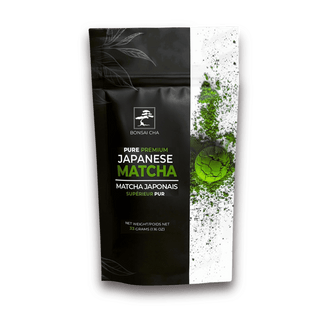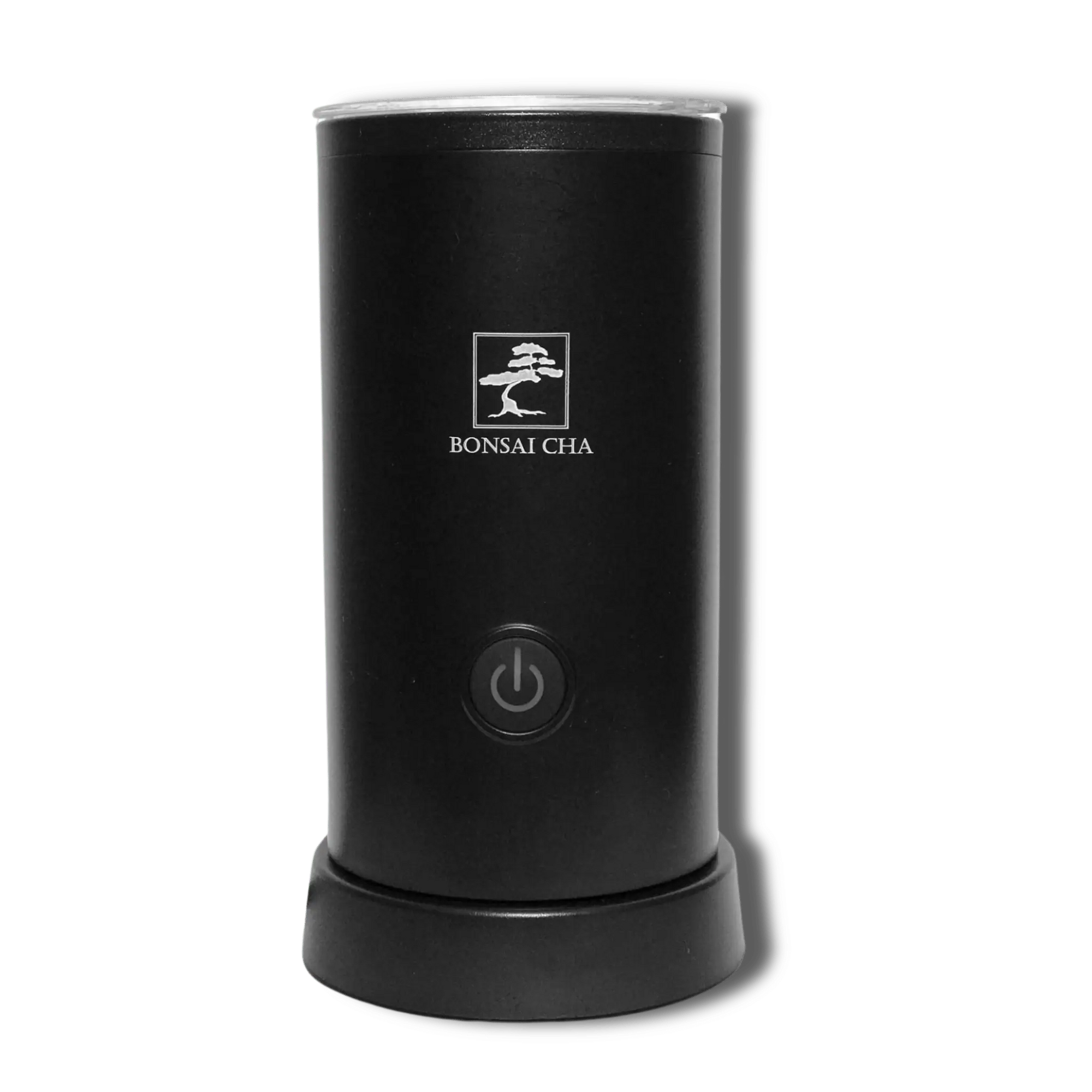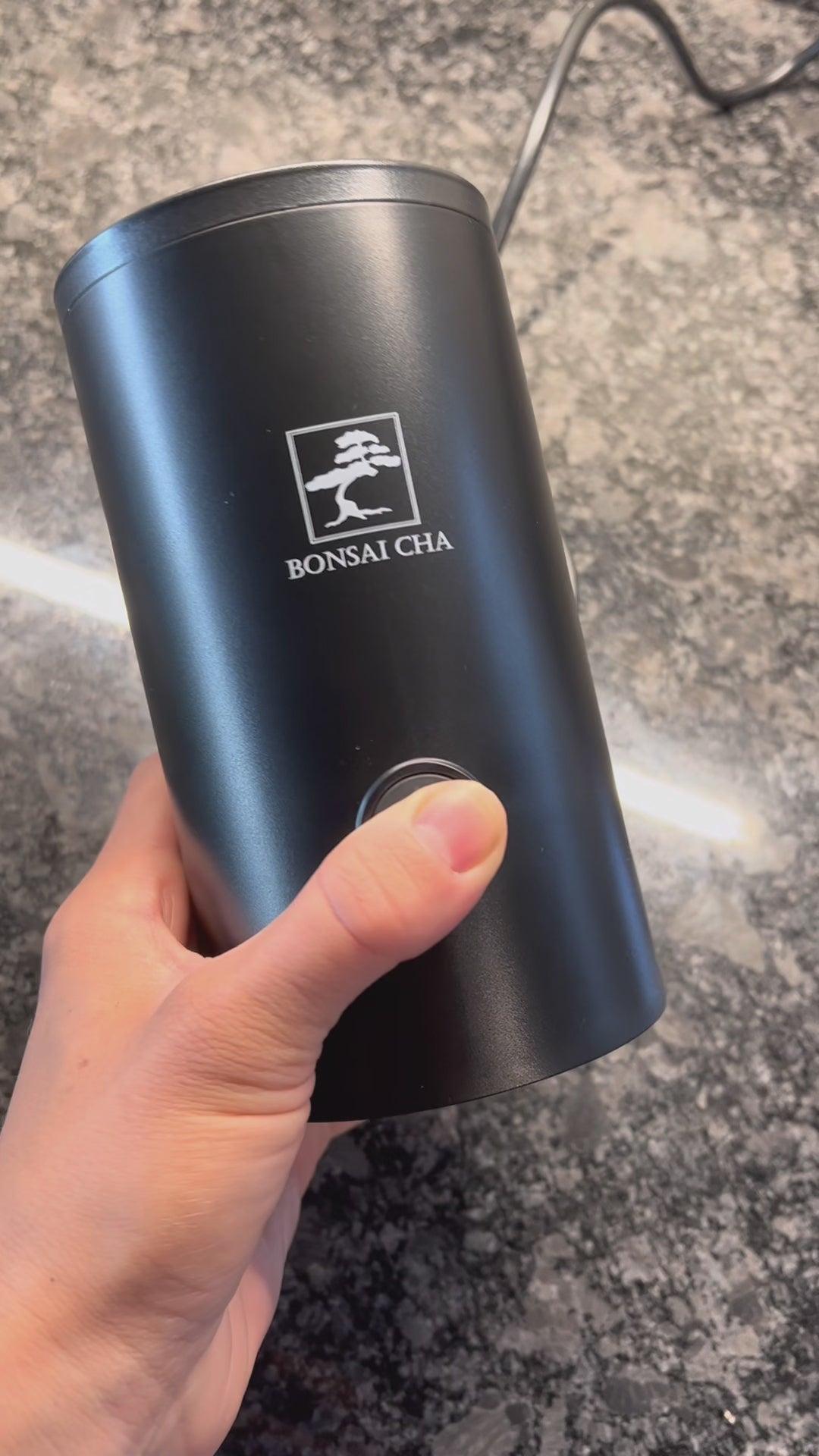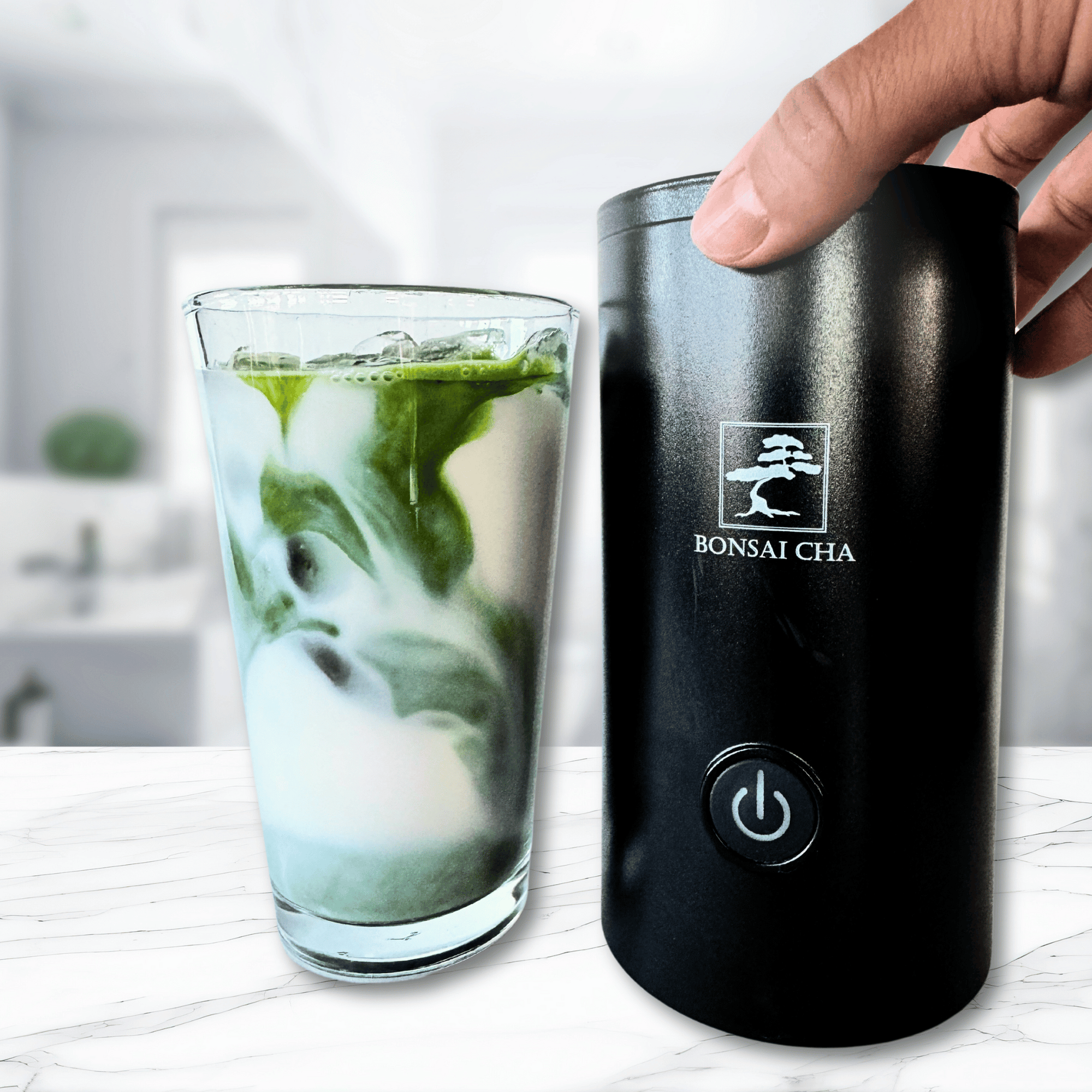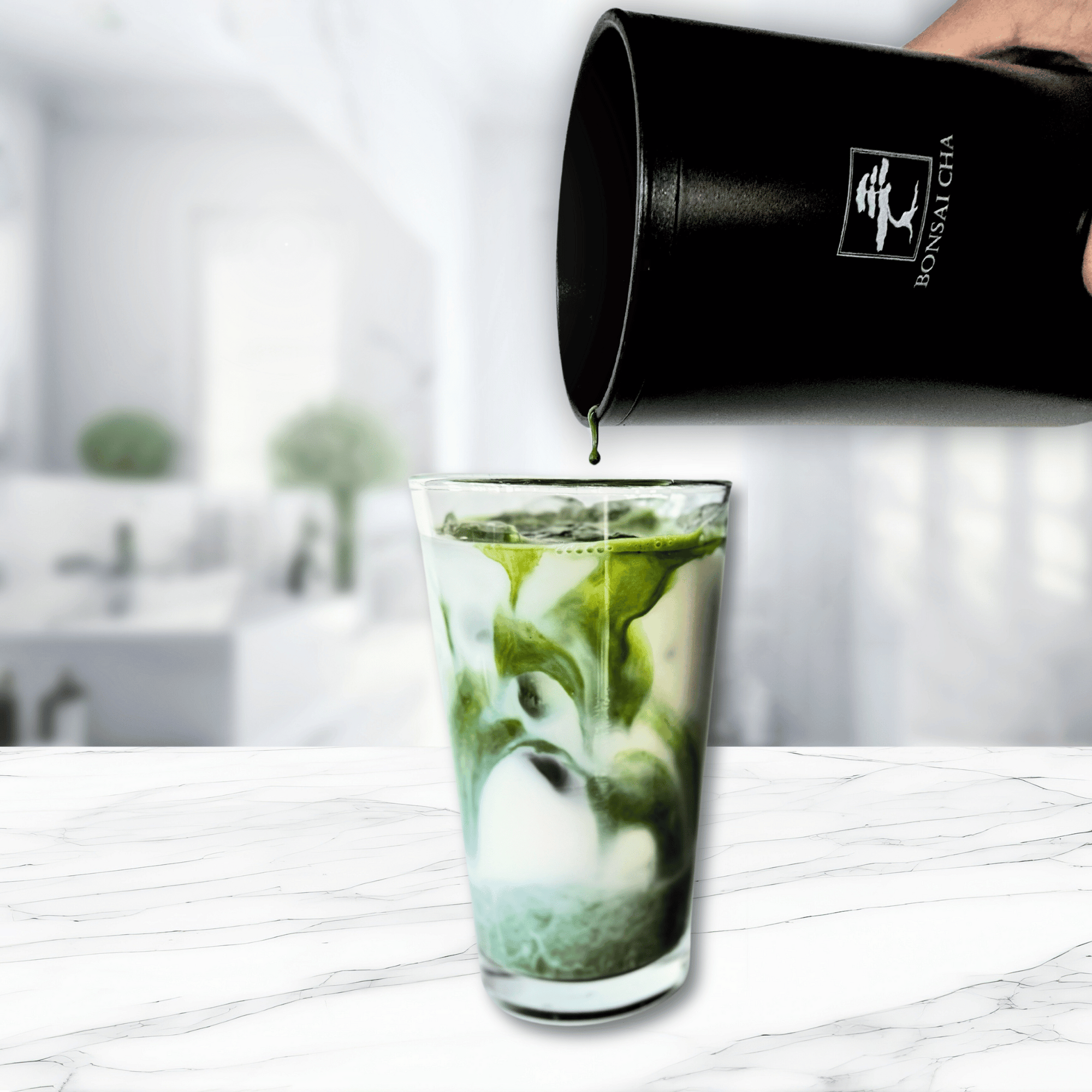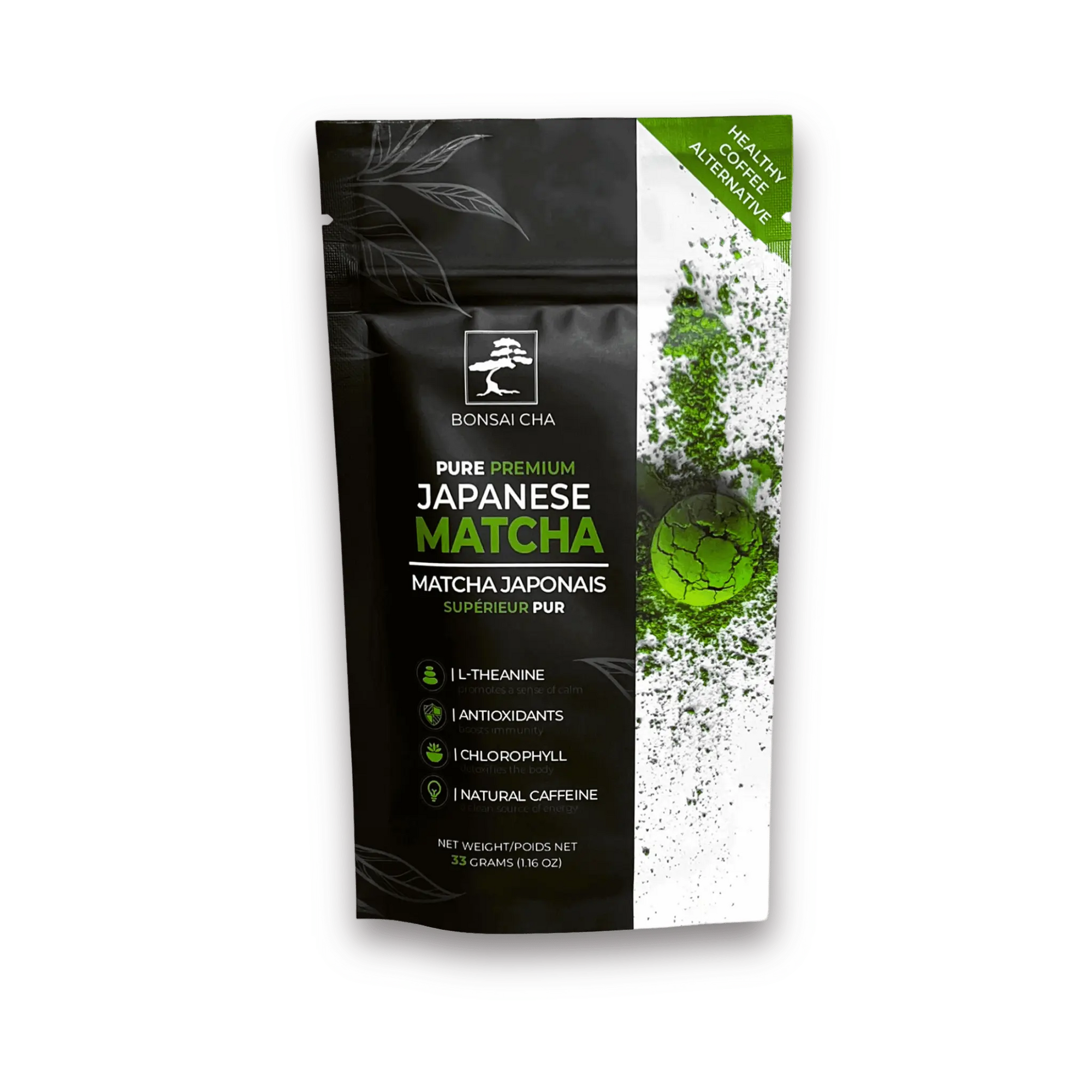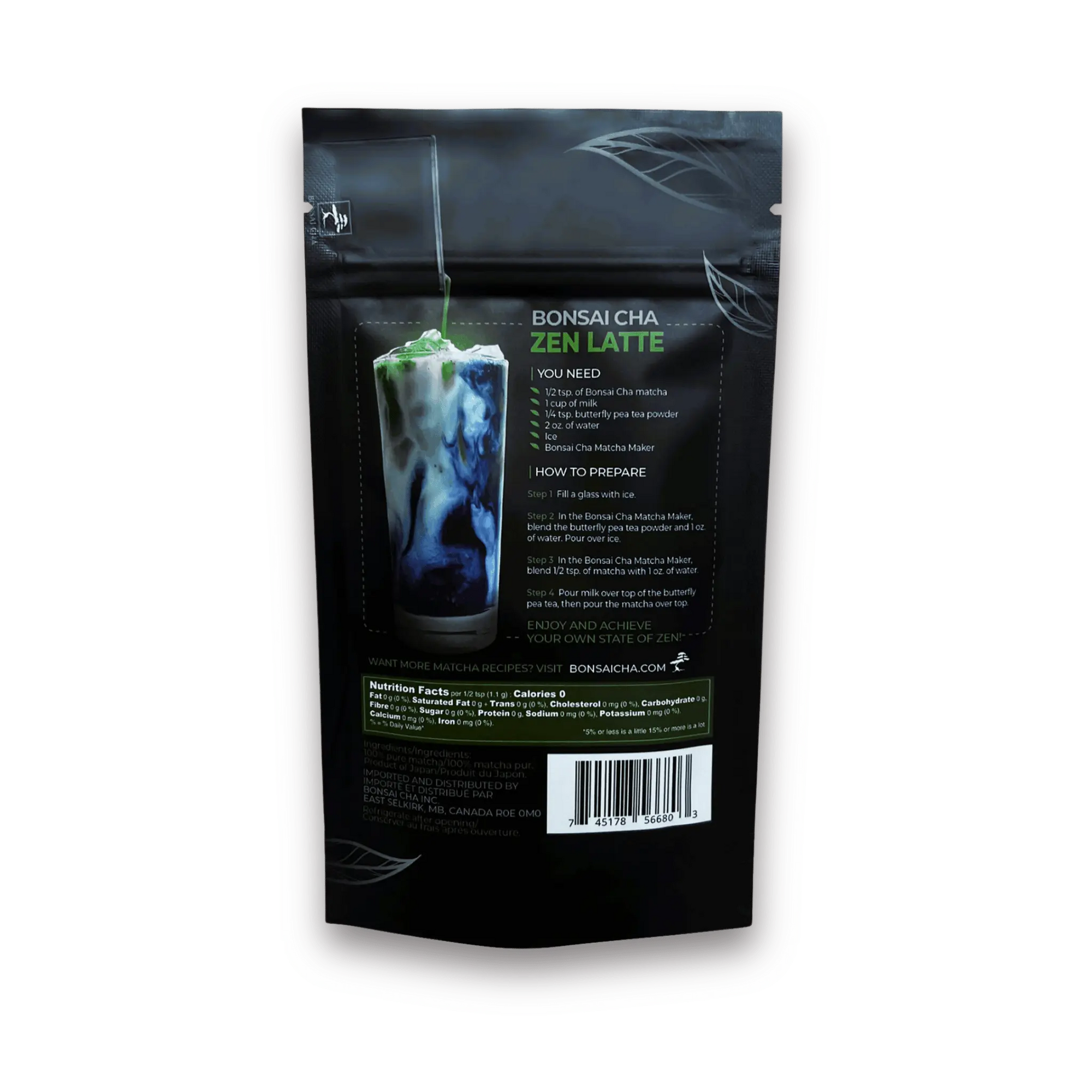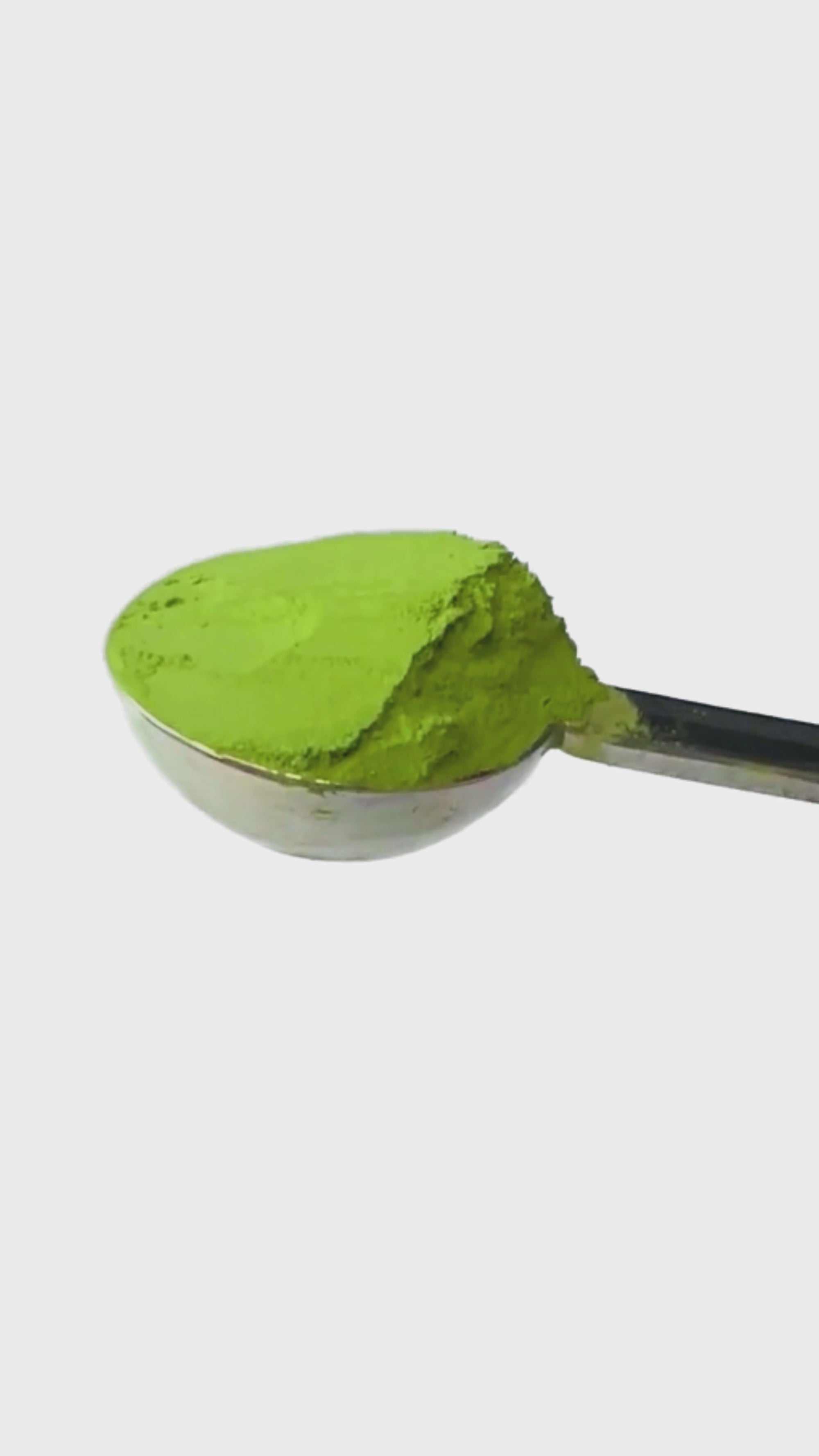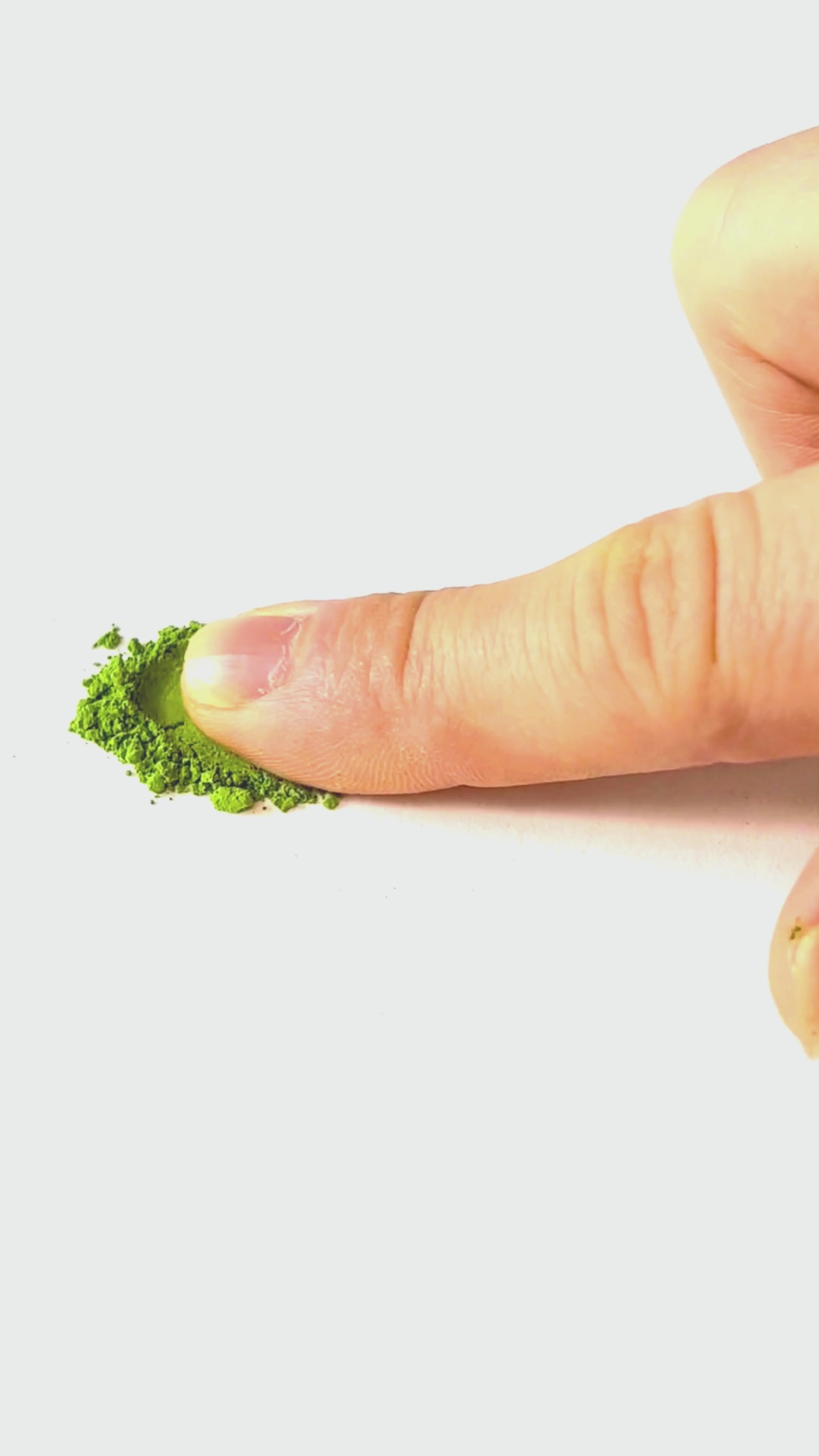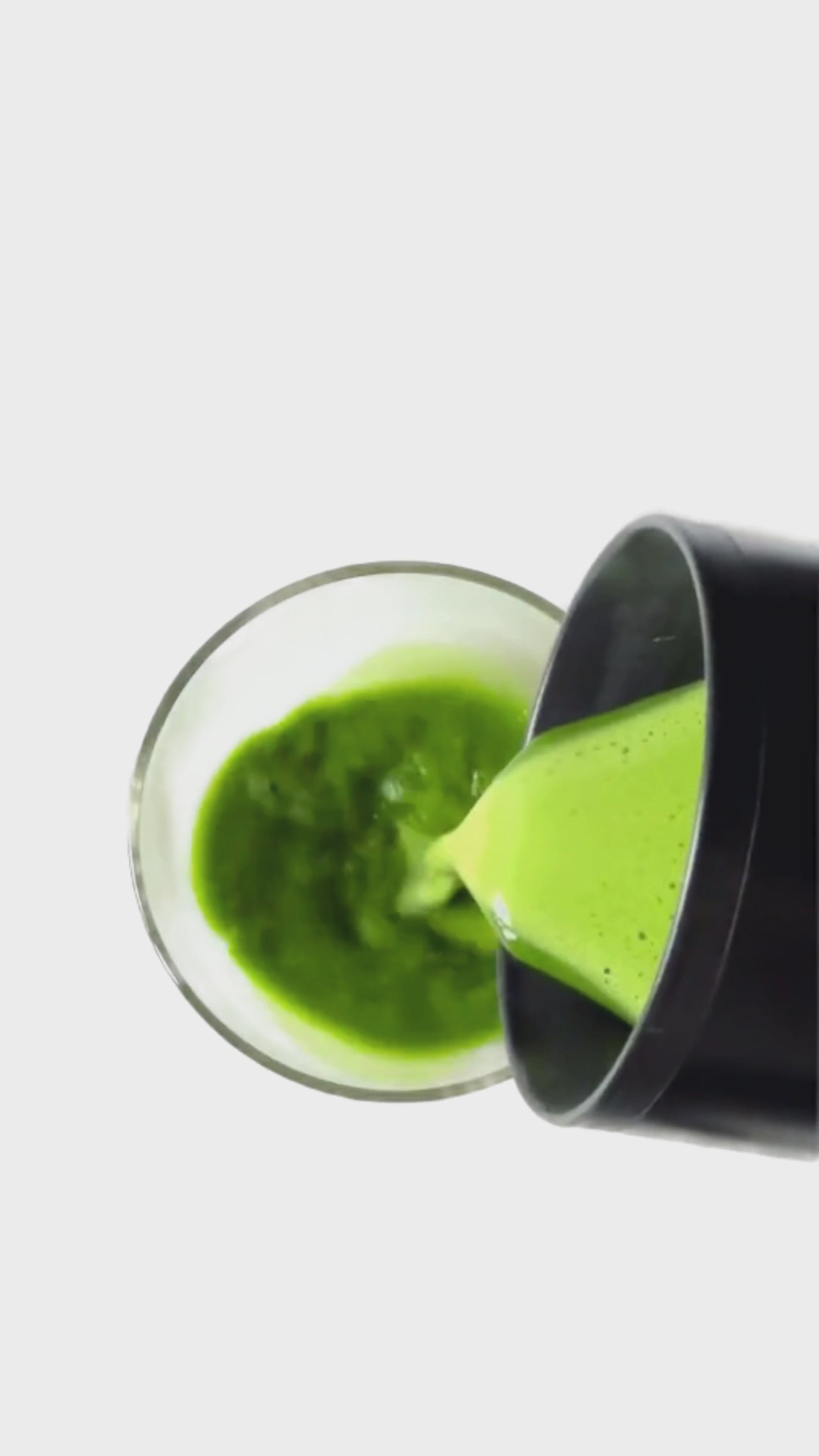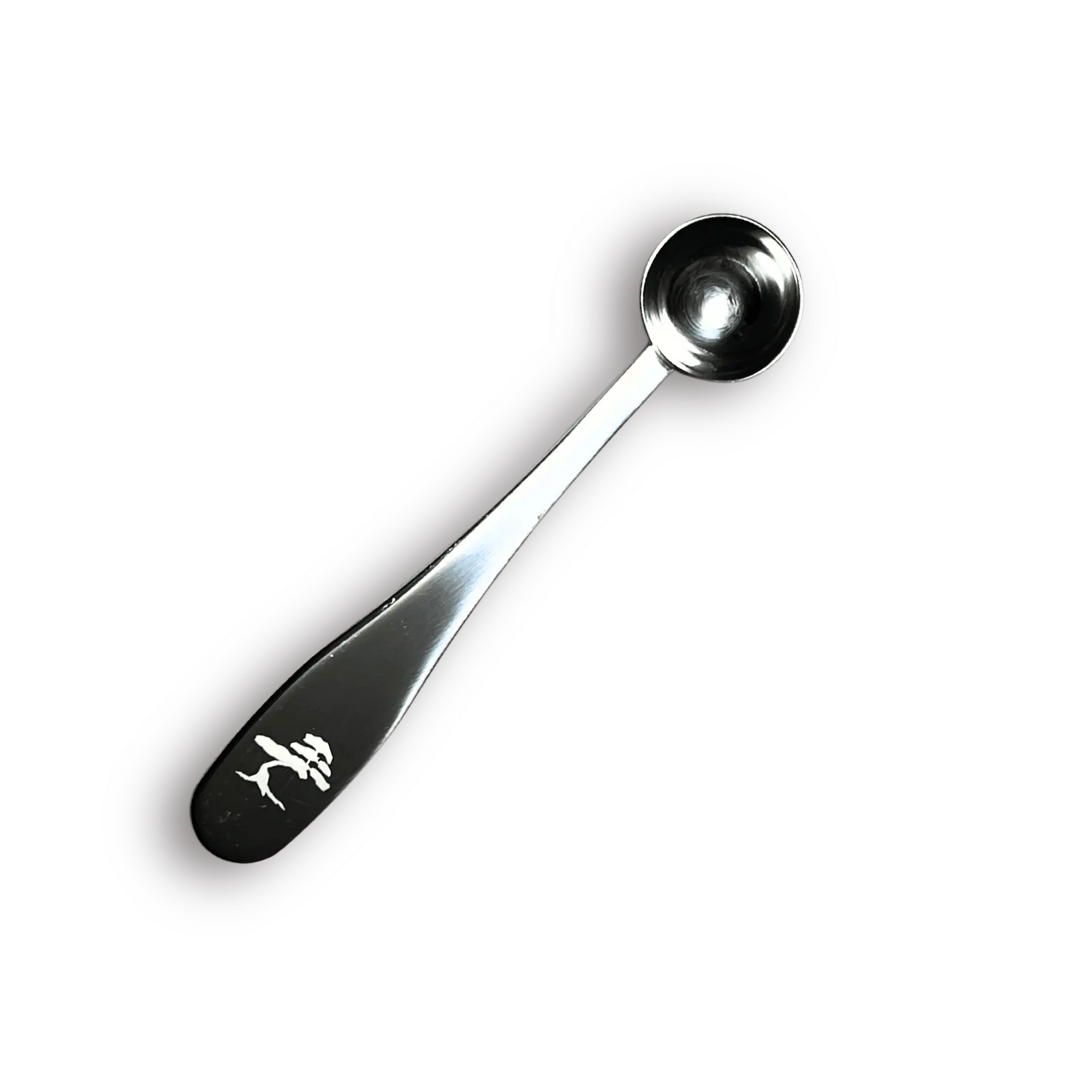The Truth About Matcha and Its Digestive Benefits: Does Matcha Make You Poop?
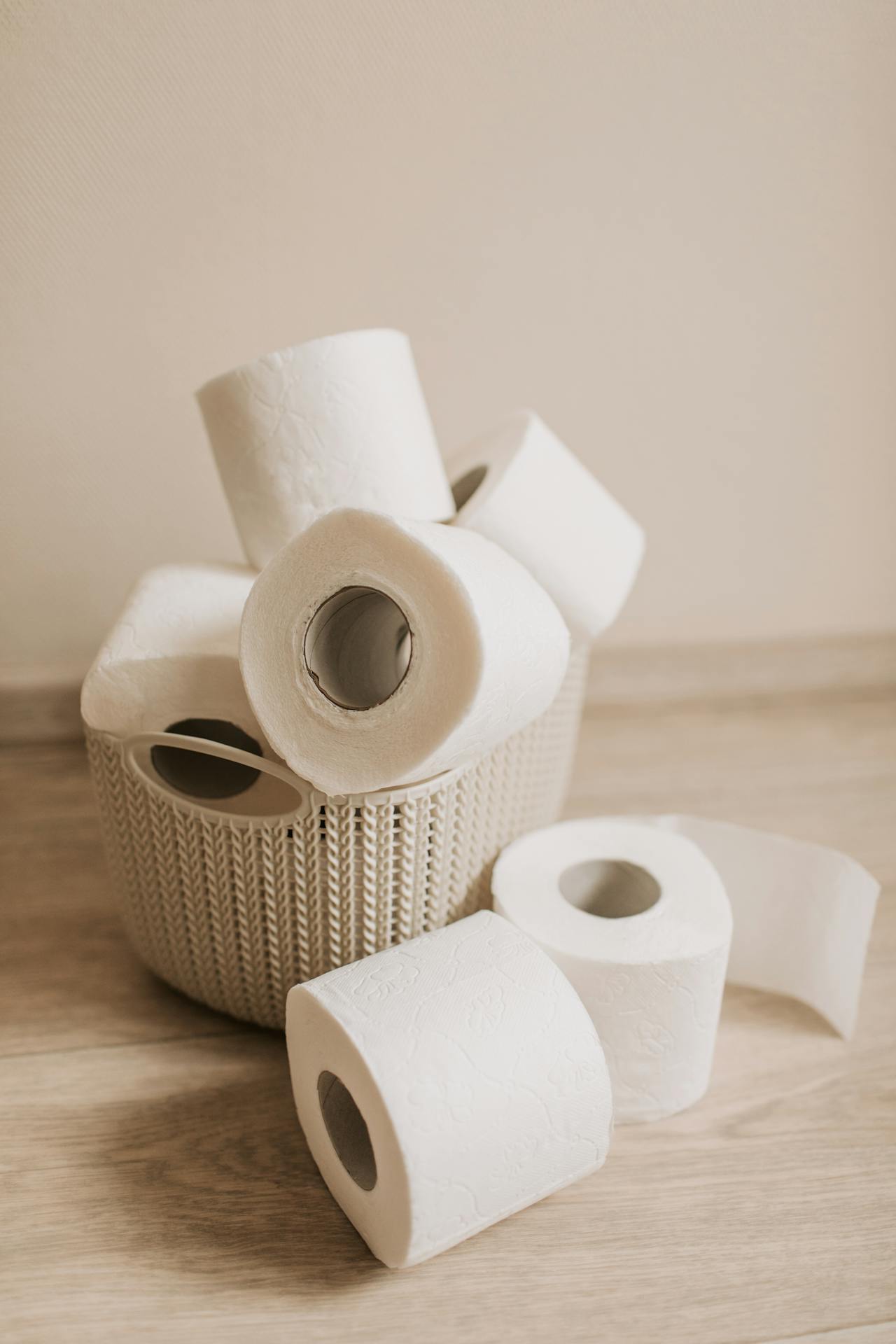
If you’ve ever wondered whether matcha green tea can send you rushing to the bathroom, you’re not alone.
While it might not be the most glamorous topic, understanding how matcha affects your digestion is important—especially if you’re looking to support a healthy gut.
So, does matcha make you poop?
The answer is yes, drinking matcha can make you poop.
This effect is primarily due to matcha's combination of caffeine, antioxidants, and natural fiber, all of which play a role in supporting healthy digestion.
The caffeine in matcha gently stimulates your digestive system, promoting bowel movements. Additionally, the antioxidants, especially catechins, help reduce inflammation in the gut, while the natural fiber adds bulk to your stool, making it easier to pass.
Unlike coffee, matcha provides these benefits without the harsh laxative effect, making it a gentler option for maintaining regularity and supporting overall gut health.
Contents
- What Makes Matcha Unique for Digestion?
- How Does Matcha Affect Your Digestive System?
- Matcha vs. Coffee: Which is Better for Gut Health?
- Why Matcha Is a Gentler Option
- Can Matcha Help with Constipation?
- Practical Tips for Digestive Health
- Tips for Maximizing the Digestive Benefits of Matcha
- Potential Downsides: Does Matcha Have Any Negative Effects on Digestion?
- The Bottom Line: Is Matcha Good for Your Gut?
- Frequently Asked Questions (FAQ)
Don't 'Cha Wanna Be in the Know?
Join our matcha community and be the first to receive insider tips, special offers and exclusive deals delivered to your inbox.
What Makes Matcha Unique for Digestion?
Caffeine Content: The Natural Stimulator
Caffeine is a well-known stimulant that affects more than just your energy levels—it can also get your bowels moving. Matcha contains caffeine, albeit less than coffee, which can help stimulate bowel movements by increasing the contractions in your digestive system. This mild stimulation is enough to promote regularity without the harsh effects that coffee can sometimes have.
Antioxidants and Polyphenols: Gut Health’s Best Friends
Matcha is rich in antioxidants, particularly catechins, which have been shown to support overall gut health. These powerful polyphenols help reduce inflammation and promote a healthy gut lining, making your digestive system more efficient. Unlike coffee, which can sometimes irritate the stomach, matcha’s antioxidants work to soothe and protect your digestive tract.
Natural Fiber: The Unsung Hero of Regularity
One of the lesser-known benefits of matcha is its fiber content. While matcha isn't a major source of fiber, it does contain around 56 grams of fiber per 100 grams of matcha powder. Most of this is insoluble fiber, which helps bulk up your stools and makes them easier to pass. Although you only consume a small amount of matcha at a time, this fiber can still contribute to regular bowel movements when included in your diet. This small amount of fiber, combined with matcha’s other digestive benefits, can play a role in promoting regular bowel movements.
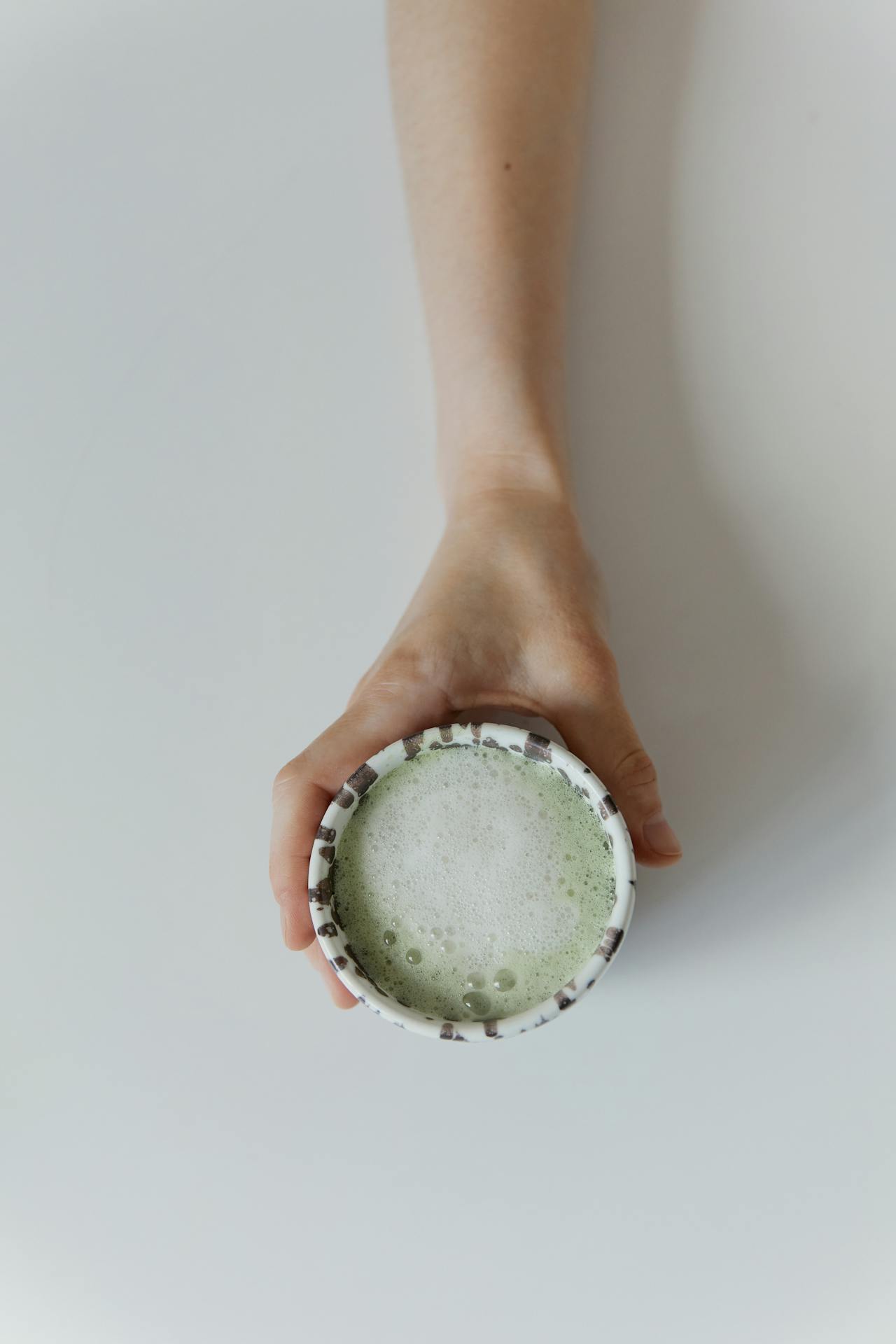
How Does Matcha Affect Your Digestive System?
Stimulating the Gastrocolic Reflex
The gastrocolic reflex is your body’s natural response to eating or drinking, which triggers contractions in your colon to make room for more food. Matcha can enhance this reflex, particularly when consumed with a meal or as part of your morning routine. This gentle stimulation helps move waste through your digestive tract, reducing the likelihood of constipation.
Hydration and Stool Softening
Dehydration is a common cause of constipation, leading to hard, dry stools that are difficult to pass. Drinking matcha is an excellent way to stay hydrated, as it contains enough fluid to help soften your stools and promote easier bowel movements. Unlike coffee, which can sometimes act as a diuretic and contribute to dehydration, matcha’s hydrating properties support your digestive health.
L-Theanine’s Role in Reducing Stress-Related Digestive Issues
Stress can wreak havoc on your digestive system, causing both constipation and diarrhea. Fortunately, matcha contains L-theanine, an amino acid known for its calming effects. By helping to reduce stress and anxiety, matcha allows your digestive system to function more smoothly, preventing stress-related digestive issues and promoting regularity.
Matcha vs. Coffee: Which is Better for Gut Health?
Coffee’s Laxative Effect: A Double-Edged Sword
Many people rely on coffee to get things moving in the morning, but this strong laxative effect can sometimes mask underlying digestive issues. Coffee’s high acidity and caffeine content can irritate the stomach, leading to dependency and potentially disrupting your body’s natural digestive rhythm. While coffee can provide quick relief, it’s not always the best choice for long-term gut health.
Why Matcha Is a Gentler Option
Matcha, on the other hand, offers a gentler alternative. While it still contains caffeine, matcha’s lower levels are less likely to cause irritation or dependency. Additionally, matcha’s combination of antioxidants, fiber, and hydration support a healthier digestive process, making it a better option for those looking to maintain regularity without the harsh effects of coffee.
Psst... Use the secret code BONSAIBLOG at checkout to
GET A FREE PREMIUM MATCHA
($33 CAD VALUE)
when you purchase any matcha powder or matcha kit
(Limited to 1 per customer)
Can Matcha Help with Constipation?
Promoting Regular Bowel Movements
If you’re struggling with constipation, incorporating matcha into your diet might help. The combination of caffeine, fiber, and hydration in matcha can work together to promote regular bowel movements. By drinking matcha regularly, you’re giving your digestive system the gentle nudge it needs to stay on track.
Practical Tips for Digestive Health
To maximize matcha’s digestive benefits, try incorporating it into your morning routine or enjoy it with meals. Start with one cup a day and see how your body responds. If you find that matcha helps you stay regular, you can gradually increase your intake. Remember, moderation is key—too much caffeine can lead to other digestive issues, so listen to your body and adjust accordingly.
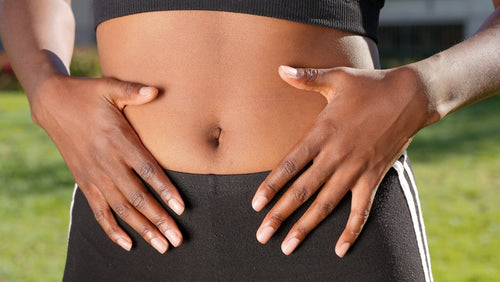
Tips for Maximizing the Digestive Benefits of Matcha
To fully harness the digestive benefits of matcha, consider these tips to make the most out of every cup:
1. Start with a Small Amount:
If you’re new to matcha, start with a small amount, such as 1/2 teaspoon of matcha powder, to see how your body responds. You can gradually increase the amount as your body adjusts to the effects.
2. Pair Matcha with Fiber-Rich Foods:
Enhance matcha’s digestive benefits by pairing it with fiber-rich foods like oatmeal, chia seeds, or whole-grain toast. The combination of matcha’s gentle stimulation and the fiber in your meal can promote regular bowel movements more effectively.
3. Stay Hydrated:
Drinking matcha as part of your hydration routine is key to preventing constipation. Make sure you’re consuming enough water throughout the day to complement the hydrating effects of matcha and keep your digestive system running smoothly.
4. Drink Matcha in the Morning:
Incorporate matcha into your morning routine to take advantage of its natural ability to stimulate the gastrocolic reflex. Drinking matcha first thing in the morning or alongside your breakfast can help kickstart your digestive system for the day.
5. Avoid Excess Sweeteners:
While it might be tempting to add sweeteners like sugar or honey to your matcha, doing so in excess can counteract the digestive benefits. Keep your matcha as pure as possible to maximize its positive effects on your gut.
6. Experiment with Matcha in Foods:
Don’t limit yourself to just drinking matcha. Incorporate matcha into smoothies, yogurt, or even baked goods like matcha muffins. This not only adds variety to your diet but also ensures you’re getting a steady intake of matcha throughout the day.
7. Combine Matcha with a Healthy Diet:
Matcha works best when it’s part of a balanced diet rich in fruits, vegetables, and whole grains. A diet that’s high in fiber and low in processed foods will naturally support your digestive health, and matcha can enhance these benefits.
8. Monitor Your Caffeine Intake:
While matcha contains less caffeine than coffee, it’s still important to monitor your total caffeine intake to avoid potential digestive discomfort. Balance your matcha consumption with other sources of caffeine to ensure you don’t overdo it.
9. Opt for Ceremonial-Grade Matcha:
For the best digestive benefits, choose high-quality, ceremonial-grade matcha. This type of matcha is made from the youngest tea leaves, offering the highest concentration of nutrients and antioxidants to support your gut health.
10. Listen to Your Body:
Everyone’s digestive system is different, so pay attention to how your body responds to matcha. If you notice any discomfort, adjust the amount or frequency of your matcha intake. Moderation is key to reaping the full benefits without any downsides.
These tips can help you get the most out of matcha, making it a powerful tool for supporting digestive health and maintaining regularity. Whether you’re just starting with matcha or you’re a seasoned drinker, these strategies can enhance your experience and contribute to a healthier gut.
Potential Downsides: Does Matcha Have Any Negative Effects on Digestion?
Caffeine Sensitivity
While matcha is generally well-tolerated, those who are sensitive to caffeine might experience digestive discomfort, such as jitteriness or stomach upset. If you’re new to matcha, start with a small amount and see how your body reacts. You can always increase your intake gradually as your tolerance builds.
Overconsumption Risks
Like anything, overconsumption of matcha can lead to problems. Drinking too much matcha can increase your caffeine intake to levels that might cause digestive distress or disrupt your sleep. Stick to 1-2 cups a day to enjoy the benefits without the drawbacks.

The Bottom Line: Is Matcha Good for Your Gut?
Matcha green tea is more than just a trendy beverage—it’s a natural ally in supporting digestive health. With its ability to stimulate bowel movements, promote hydration, and reduce stress-related digestive issues, matcha offers a gentle and effective way to keep your gut healthy.
By incorporating matcha into your daily routine, you can enjoy its many benefits while maintaining regularity and overall well-being. So, the next time you’re wondering whether matcha will make you poop, remember that it’s all part of the healthy process of keeping your digestive system running smoothly.
GET REGULAR WITH BONSAI CHA
Sorry, there are no products in this collection
Frequently Asked Questions (FAQ)
1. Does matcha have a laxative effect?
Yes, matcha has a mild laxative effect due to its caffeine content, which can help stimulate bowel movements without the harshness of coffee.
2. Is it safe to drink matcha every day for digestive health?
Absolutely! Drinking matcha daily can support regular bowel movements and overall gut health, but be mindful of your caffeine intake.
3. Can matcha help with both constipation and diarrhea?
Matcha’s balanced effects can help with both constipation and diarrhea by promoting hydration and reducing stress, both of which are crucial for digestive health.
4. What’s the best time to drink matcha for digestive benefits?
The best time to drink matcha is in the morning or with meals, as it can stimulate the gastrocolic reflex and promote regular bowel movements. Start incorporating matcha into your routine and see how this powerful green tea can support your digestive health and overall well-being!
5. Does matcha make your poop green?
Yes, matcha can make your poop green. This is due to the vibrant green chlorophyll present in matcha, which gives the tea its characteristic color. When you consume matcha, the chlorophyll can pass through your digestive system, sometimes tinting your stool green. This is generally harmless and just a sign that your body is processing the natural pigments in matcha.
6. Is matcha gentler on your digestive system than coffee?
Yes, matcha is generally considered gentler on the digestive system than coffee. While both beverages contain caffeine, matcha has about 60% less caffeine than coffee, which reduces the likelihood of digestive upset. Additionally, matcha contains L-theanine, an amino acid that promotes relaxation and counters the jittery effects of caffeine, making it a smoother option for those with sensitive stomachs.
The information provided in this article is for informational purposes only and is not a substitute for professional medical advice, diagnosis, or treatment. Always consult your physician or a qualified healthcare provider with any questions about a medical condition. Bonsai Cha products are not intended to diagnose, treat, cure, or prevent any disease. The statements in this article have not been evaluated by the FDA or Health Canada.

